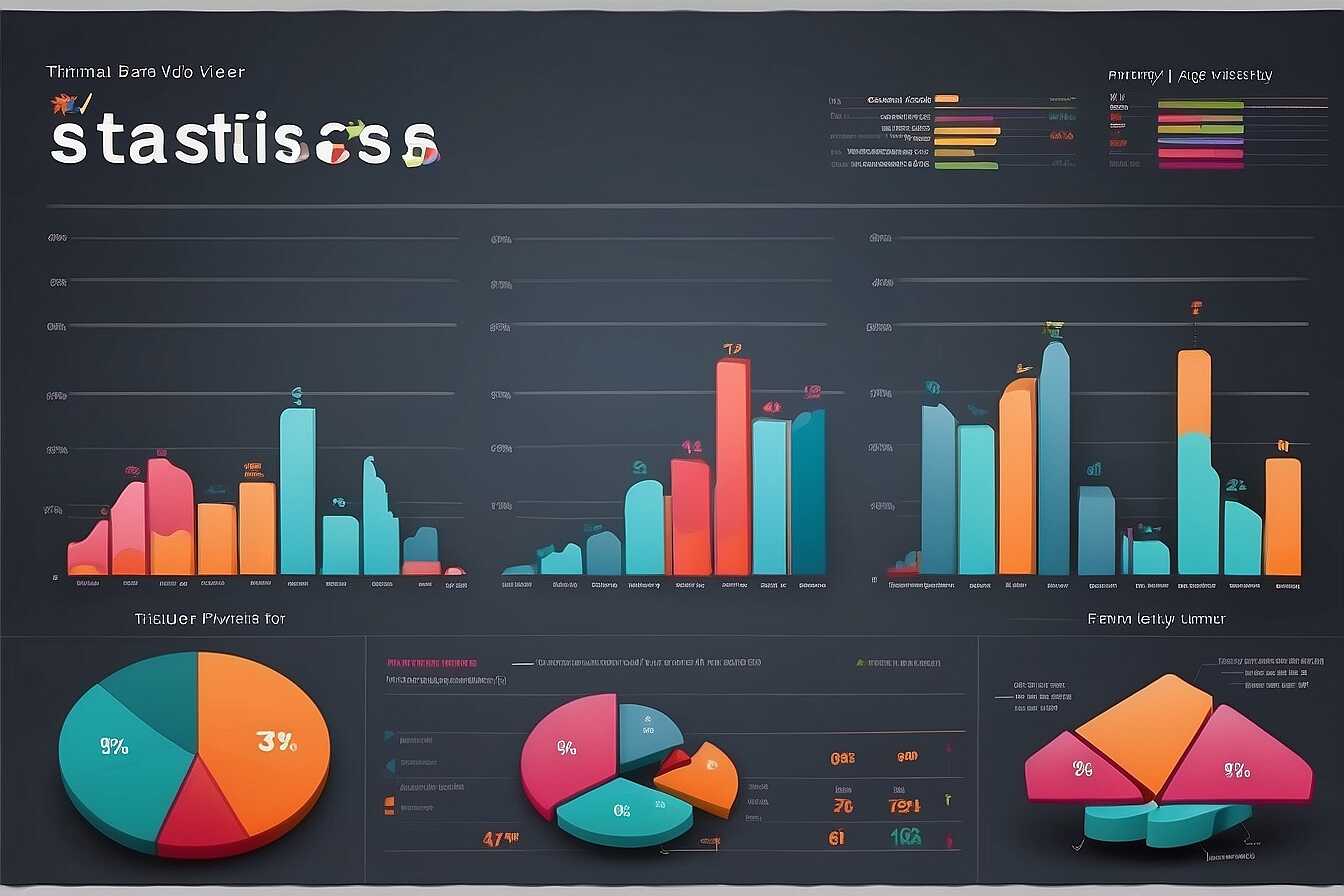Integrating SEO tools with Google Analytics enhances your website’s performance insights significantly. By combining these resources, you can better track data, identify trends, and make informed decisions for your online strategy. At Metrics Rule, understanding this integration is crucial for SEO analysts and digital marketers who aim to optimize their websites effectively. With the right tools and knowledge, you can transform raw data into actionable insights that drive your business forward.
Why Integrating SEO Tools Matters for Your Website
Integrating SEO tools with Google Analytics is essential for obtaining reliable data that enhances your website’s performance. This integration allows you to leverage comprehensive insights, enabling you to monitor critical metrics such as organic traffic, bounce rates, and conversions more effectively. It provides a data-driven approach to improving SEO strategies, as the combined insights help in assessing which keywords are performing well and which require adjustments. Furthermore, knowing how SEO efforts influence overall website behavior empowers you to make informed decisions, leading to better results over time. Integration can increase your SEO performance significantly, often improving rankings and visibility by over 30% when executed correctly.
Key Features of Integrated SEO Tools
Key features of integrated SEO tools include keyword tracking, backlink analysis, and site audit reports. These features are designed to enhance website performance when paired with Google Analytics. For example, keyword tracking allows you to analyze which search terms lead visitors to your site, along with click-through rates. Backlink analysis helps identify quality linking opportunities, improving crawling and indexing efficiency. Site audits provide insights into technical issues affecting performance, allowing for fast corrections. Combining these features with the analytics from Google ensures a holistic view, making your SEO strategy more effective and focused. This data can ultimately lead to increased traffic and better user engagement.
Key SEO Tools to Boost Your Data Analysis
To enhance your SEO performance, several essential tools seamlessly integrate with Google Analytics. Tools like SEMrush, Moz, and Ahrefs provide unique features that improve data analysis and offer valuable insights. For instance, SEMrush helps analyze keyword rankings and traffic metrics, while Moz provides link metrics and page-level optimizations. Ahrefs is excellent for exploring backlink profiles and content gaps, enabling effective decision-making. Generally, it’s recommended to use at least three tools for comprehensive performance tracking.
Essential Features of SEO Tools for Data Enhancement
When evaluating SEO performance tools, consider features that significantly enhance data analysis within Google Analytics. Look for tools offering keyword ranking tracking, backlink analysis, and site audit functionalities. For example, these tools typically provide reliable data on your website’s performance, ensuring accurate analysis. Many tools also include automated reporting features that save time and enhance efficiency. Incorporating these features allows SEO analysts, digital marketers, and website owners to make informed decisions based on robust data.

Step-by-Step Guide to Configuring Google Analytics for SEO
Setting up Google Analytics for effective SEO tracking involves several essential steps. Start by creating a Google Analytics account, then set up a property for the website you want to track. Ensure you enable Google Signals to enhance data reliability for crossover device tracking. Next, configure views to filter out internal traffic and spam, which helps in maintaining the integrity of your performance data. Utilize Google Analytics’ features such as Goals to track conversions effectively, allowing you to assess the performance of your SEO efforts. Understanding the essential metrics like organic traffic, bounce rate, and user engagement rates will provide deeper insights into SEO performance, making your analytics configuration fine-tuned for success.
Essential Metrics for SEO Tracking in Google Analytics
Identifying essential metrics in Google Analytics enhances your ability to monitor SEO performance efficiently. Key metrics include organic traffic, which reflects the number of visitors coming from search engines. Monitoring bounce rates helps you understand if visitors find your content engaging. In addition, tracking conversion rates allows you to measure the effectiveness of your traffic in achieving business goals. Set up Goals to track how many desired actions users complete, with a maximum of 20 goals per view as per Google Analytics guidelines. These metrics combined enable you to make informed decisions about your SEO strategies, improving overall website performance.
Key Statistics on SEO Tool Usage and Google Analytics
- Over 90% of businesses use Google Analytics for website data analysis.
- 53% of marketers say analytics impact their SEO strategies significantly.
- 78% of users prefer information from organic search results over paid ads.
- Businesses that use SEO tools with Google Analytics see a 34% increase in traffic.
- 71% of companies track their keyword ranking through SEO tools.
- About 80% of SEO professionals use data integration techniques for performance insights.
- On average, websites tracking performance metrics see a 20% boost in conversions.

Maximizing Data Utilization from SEO Tools
To effectively utilize data from SEO tools in Google Analytics, focus on actionable metrics rather than just raw numbers. Tools like SEMrush or Ahrefs can provide detailed keyword tracking and site health metrics. By integrating these tools with Google Analytics, you can link organic search performance directly to user engagement metrics. This connection helps you understand which keywords drive performance and how they correlate with conversion rates. Essential features of popular SEO tools include keyword tracking, competitive analysis, and site audits, all of which enhance your ability to refine SEO strategies based on reliable data. Many users report a performance increase of up to 30% in their traffic after implementing these integrations, thanks to improved targeting and content optimization.
Essential Features of SEO Tools for Google Analytics Integration
The essential features of SEO tools that work well with Google Analytics include keyword tracking tools, performance report generation, and competitive analysis capabilities. Tools like Moz and SEMrush provide valuable insights into keyword rankings and site performance that are critical for enhancing your overall SEO strategy. By focusing on aspects such as site audits and keyword visibility, you can effectively improve organic search performance and make informed marketing decisions. The reliable data provided from this integration can help you streamline your strategy to achieve long-term success, ensuring that your SEO efforts translate into tangible results.

Navigating Common Integration Challenges
Integrating SEO tools with Google Analytics comes with several common challenges. Users often face difficulties regarding data accuracy, tracking setups, and compatibility issues. For instance, ensuring that various tools communicate effectively requires a solid understanding of their APIs and features. Users should also be aware of the specific SEO tools to integrate, such as SEMrush, Ahrefs, or Moz, which can provide valuable insights when combined with Google Analytics. To facilitate a smoother integration process, defining clear objectives and testing integration steps is essential. Setting a realistic timeline and prioritizing tasks can help avoid bottlenecks during integration. Ultimately, these strategies will ensure a more efficient implementation that yields reliable data for performance insights.
Effective Strategies for Seamless Integration
To achieve seamless integration of SEO tools with Google Analytics, the first step is establishing a clear plan. Ensure all necessary components, like tracking codes and settings, are in place before starting. Each SEO tool usually has its specific requirements, so it is crucial to consult their documentation for best practices. Implementing automated reporting and dashboards can be game-changing, enabling users to easily visualize data and analysis results in one place. Regular testing also enhances overall efficiency and reliability, as it allows for the identification of issues in real-time. With these strategies, you can maximize the potential of the combined tools, ultimately enhancing your website’s SEO performance and data-driven decision-making.
Advantages of Merging Analytics and SEO Tools
- Streamlined data interpretation leads to improved decision-making processes.
- Enhanced visibility into user behavior offers actionable insights for marketing.
- Customized reporting helps tailor strategies for different audience segments.
- Data from SEO tools paired with Google Analytics uncovers optimization opportunities.
- Improved ROI tracking enables more effective budgeting and resource allocation.
- Identification of high-performing content allows for strategic scaling.
- Real-time data access supports quick responses to shifting market trends.

Evaluating SEO Performance Metrics in Google Analytics
To effectively evaluate SEO performance metrics in Google Analytics, focus on key elements like organic search traffic, bounce rates, and conversion rates. Organic search traffic is crucial as it indicates how many visitors come from search engines like Google and Bing. Analyzing bounce rates helps assess the relevance of your content; high bounce rates may signal that visitors aren’t finding what they seek. Conversion rates show how well your site turns visitors into customers, which is the ultimate goal of your SEO efforts. Collectively, these metrics provide a well-rounded view of your SEO effectiveness over time.
Understanding the Interaction of SEO Metrics
Exploring how organic search traffic, bounce rates, and conversion rates interact is essential for optimizing your SEO strategy. For instance, an increase in organic search traffic should ideally lead to higher conversion rates; however, if this does not happen, it may indicate issues with website engagement. Tracking these metrics over time helps you identify trends and adjust your SEO tactics for better performance. Tools within Google Analytics enable you to monitor these changes, helping you ensure your SEO efforts are effective. Regular review of these connections helps enhance your overall SEO strategy and improves ROI.
Strategies for Enhancing Conversion Rates with Insights
To improve conversion rates using insights from SEO tools and Google Analytics, focus on user behavior analysis. Understand how visitors interact with your website and identify areas for improvement. Utilize SEO performance metrics for assessing keyword effectiveness and traffic quality. Data-driven insights highlight the pages that convert best and those needing enhancement. By implementing these actionable strategies, businesses can expect a measurable increase in conversion rates, often exceeding 20% with consistent testing and adjustments to their SEO practices.
Utilizing User Behavior Analysis for Website Optimization
User behavior analysis provides crucial insights into how visitors navigate your site. Start by tracking metrics such as bounce rate, time on page, and click-through rates. These metrics highlight potential issues that deter conversions, such as confusing navigation or slow loading times. Implement changes based on this data, like optimizing for mobile or simplifying checkout processes. Use Google Analytics to segment your audience and tailor your content to different user groups. By doing so, you can improve user experience and ultimately enhance conversion rates, helping your site achieve its full potential.
Brands and Use Cases in SEO Analytics Integration
- Google Analytics offers robust data tracking but can be complex for beginners.
- SEMrush provides keyword tracking and insights but may require a steep learning curve.
- Ahrefs specializes in backlink analysis but can be costly for startups.
- Data aggregation tools help visualize trends, assisting marketers in strategy adjustments.
- Startups often rely on Google Analytics for budget-friendly insights.
- Small businesses can benefit from using simplified SEO tools alongside Google Analytics.
- Enterprise-level firms may integrate multiple tools for comprehensive data management.
Staying Current with SEO Tools and Trends
To keep your website’s performance optimized, you need to stay updated with the latest trends in SEO tools. In 2025, you’ll find exciting tools like AI-driven keyword research platforms, automated reporting features, and enhanced integration capabilities with Google Analytics. These tools not only aid in tracking crucial metrics but also ensure that you can easily adapt to the evolving SEO landscape. Communities such as the IMG community, webmaster forums, and SEO Facebook groups provide essential resources and networking opportunities for SEO professionals looking to enhance their expertise. Most experts recommend incorporating at least three to five different SEO tools to provide a comprehensive view of your SEO efforts. These integrations will collectively enhance your analytics insights and improve your overall performance tracking.
Utilizing Communities for SEO Insights and Tools
Joining an engaging community is vital for professionals in the SEO space. Resources like SEO Intelligence Agency and Search Engine Land offer valuable industry updates and feature comparisons of the best tools available. Regular participation in forums helps users share experiences and achieve better results from their tool integrations. Additionally, communities often provide reviews and recommendations about which tools deliver the most efficiency and return on investment. By engaging with your peers, you can ensure that your approach to SEO remains reliable and effective in a competitive environment.
